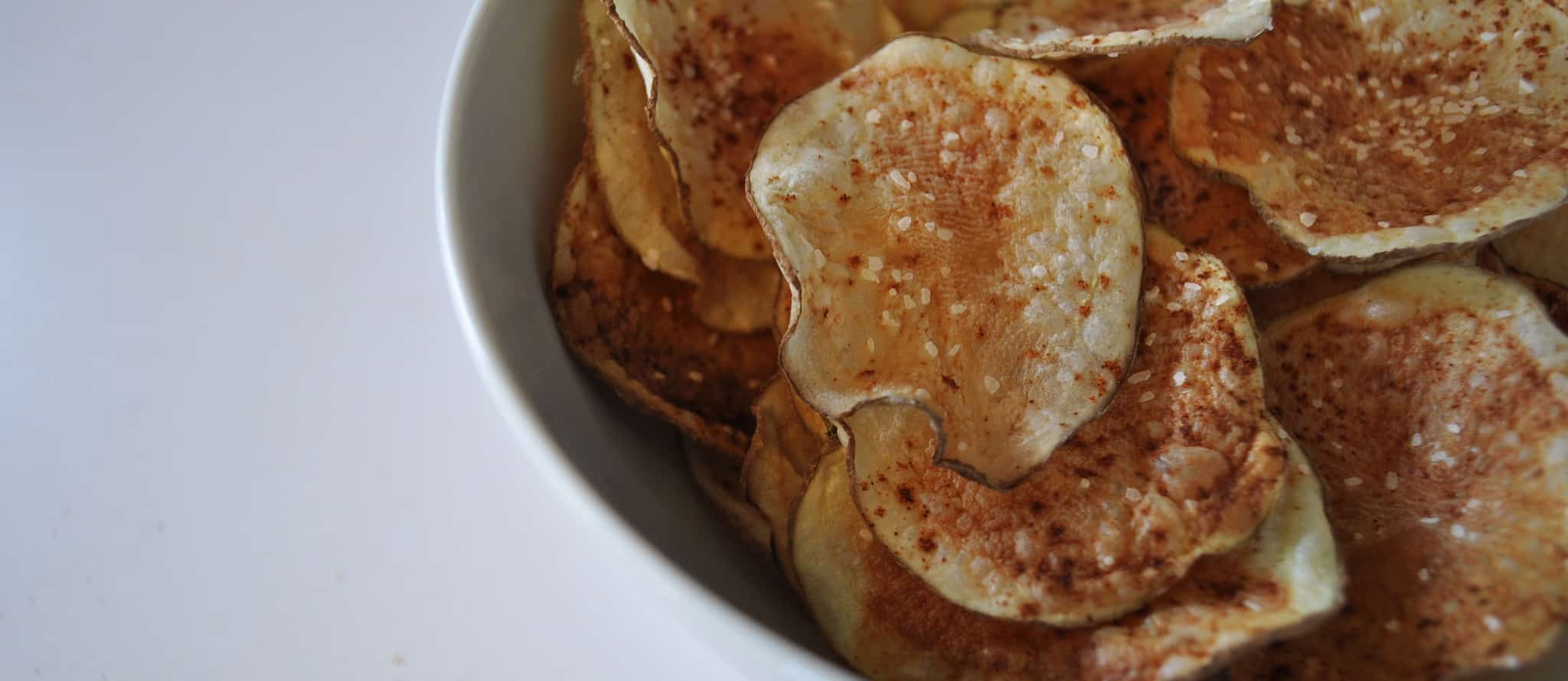In the latest study on dietary patterns and breast cancer risk among women, healthier eating was associated with eliminating three-quarters of the odds of breast cancer, whereas less healthy eating was associated with up to nearly eight times the odds. Included in the unhealthy eating pattern was the consumption of deep-fried foods, which have previously been linked to breast cancer, pancreatic cancer, lung cancer, oral and throat cancers, esophageal cancer, and cancer of the voicebox. No deep fried foods? What’s a Southern belle to do? Instead of deep fried foods, how about the traditional Southern diet, characterized by high intakes of cooked greens, beans, legumes, cabbage, sweet potatoes and cornbread, which may reduce the risk of invasive breast cancer significantly.
What about the consumption of deep-fried foods and risk of prostate cancer? Researchers at the Fred Hutchinson Cancer Research Center and the University of Washington found that eating French fries, fried chicken, fried fish, and doughnuts was associated with about a third greater odds of prostate cancer. After stratifying for tumor aggressiveness, they found slightly stronger associations with more aggressive disease, suggesting that regular intake of deep-fried foods may contribute to the progression of prostate cancer as well.
What in deep fried foods is so bad for us? Just heating oil that hot can generate potentially carcinogenic compounds, and then known carcinogens such as heterocyclic amines and polycyclic aromatic hydrocarbons form when the muscles of chickens and fish are cooked at that temperature. Deep-fried plants, on the other hand, can form acrylamide.
Studies have suggested pregnant women may want to cut back on French fries to protect the growth of their baby’s body and brain. Based on a study (highlighted in my video, Cancer Risk from French Fries) feeding people a little bag of potato chips every day for a month, it now seems acrylamide may also cause inflammation as well, which could explain its purported role in cancer progression.
Acrylamide intake has been associated with endometrial cancer, ovarian cancer, lung cancer, kidney cancer, and esophageal cancer. How much cancer risk are we talking about? Taiwanese researchers examined lifetime cancer risk and French fry consumption. The researchers picked on French fries because they comprise by far the greatest percentage contribution of acrylamide to the diets of children. They estimated that, at most, one or two boys and girls out of every ten thousand would develop cancer eating French fries that they would otherwise not have developed if they hadn’t eaten French fries. So it’s not as bad as eating something like fried fish, or fried chicken, but how much is that saying?
The level of cancer risk in both boys and girls associated with French fries depends on how long and hot they’re fried. In Europe, the food industry swore that they’d self-regulate and control fry times to decrease acrylamide levels, but we’ve yet to see any subsequent change in acrylamide levels in French fries.
Researchers continue to urge that the cooking temperature should be as low as possible and the cooking time should be as short as possible, “while still maintaining a tasty quality” of course. We wouldn’t want to reduce cancer risk too much—they might not taste as good!
Blanching the potatoes first reduces acrylamide formation, but potato chip companies complain that, not only would it muck with the flavor, but it would reduce the nutritional properties by leaching away some of the vitamin C. But if we’re relying on potato chips to get our vitamin C, acrylamide is probably the least of our worries.
More on heterocyclic amines:
- Estrogenic Cooked Meat Carcinogens
- PhIP: The Three Strikes Beast Carcinogen
- Reducing Cancer Risk in Meateaters
- Heterocyclic Amines in Eggs, Cheese, and Creatine?
There are some things we can do to counteract the effects of these carcinogens, though:
- Cancer, Interrupted: Green Tea
- Cancer, Interrupted: Garlic & Flavonoids
- Prolonged Liver Function Enhancement From Broccoli
I touch on polycyclic aromatic hydrocarbons in Meat Fumes: Dietary Secondhand Smoke and Is Liquid Smoke Flavoring Carcinogenic?
Certain fats may play a role in breast cancer survival as well: Breast Cancer Survival, Butterfat, and Chicken and Breast Cancer Survival and Trans Fat.
-Michael Greger, M.D.
PS: If you haven’t yet, you can subscribe to my videos for free by clicking here and watch my full 2012 – 2015 presentations Uprooting the Leading Causes of Death, More than an Apple a Day, From Table to Able, and Food as Medicine.
